Post
A catch
Save a catch to start your fishing logbook. You will be able to to share it with the community if yo want!
A fishing trip
Post an ad to go fishing with other fishermen
Save a catch to start your fishing logbook. You will be able to to share it with the community if yo want!
Post an ad to go fishing with other fishermen
Share a thought, a question with the community
My favorite cities
×Join our 639 fishermen and our 1 cofisherman in Templeton-Bridge in Devon. The fishing forecast is currently 2.5. The most caught fishes here are the zander fish, the perch, the rudd fish and the spined stickleback . Come try the most famous fishing techniques like the squid fishing with jigs, the bichi-bachi, support fishing for bass or angling bass with surface lures.
Our fishing forecast of Templeton Bridge indicates the best time to go fishing in this city.
The Zander fish
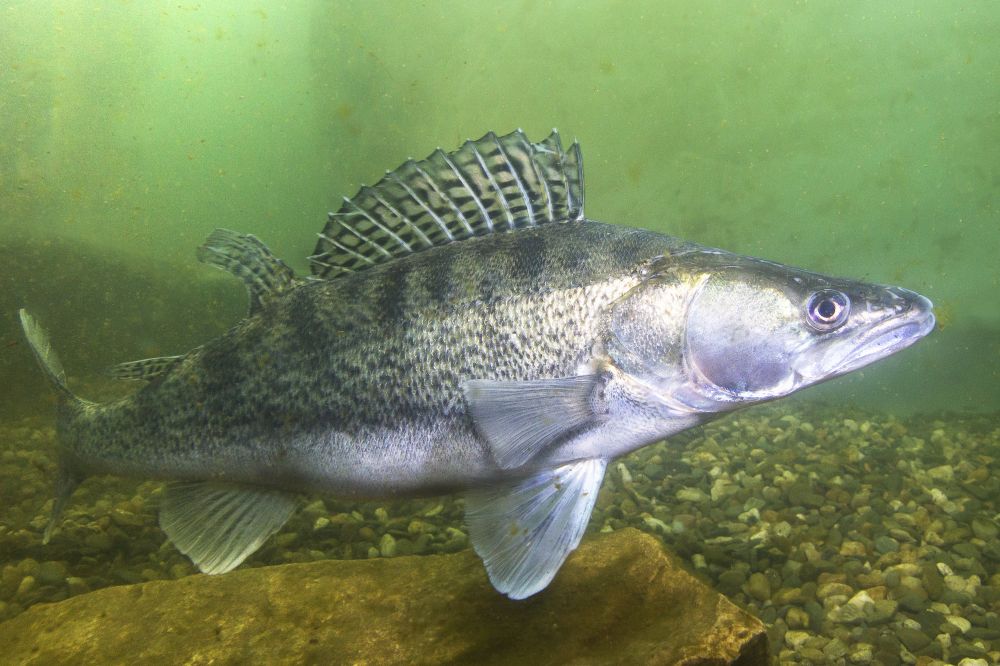
The zander fish belongs to the Percidae family. The Zander is a fish that can reach a length of 100 cm (maximum 130 cm) for a weight of 20 kg and an age of about fifteen years (maximum 20 years). Spawning takes place between April and August. Fertility is high with nearly 200,000 eggs/kg of female. It is caught from May to December. Its body is slender and fusiform. The head is elongated. The back is greenish grey and has slight dark vertical stripes. It has no transverse stripes and the flank is clear. The belly is whitish except in the male during the breeding season when it is darker. No thorns on the gill cover. Its two dorsal fins are separated. The first is spotted and thorny. The caudal fin has 17 soft rays. Its mouth is armed with many teeth and large "canines" that are visible when the animal is motionless due to breathing movements.
The Zander fish is a famous fish you can catch in Templeton Bridge.The Perch
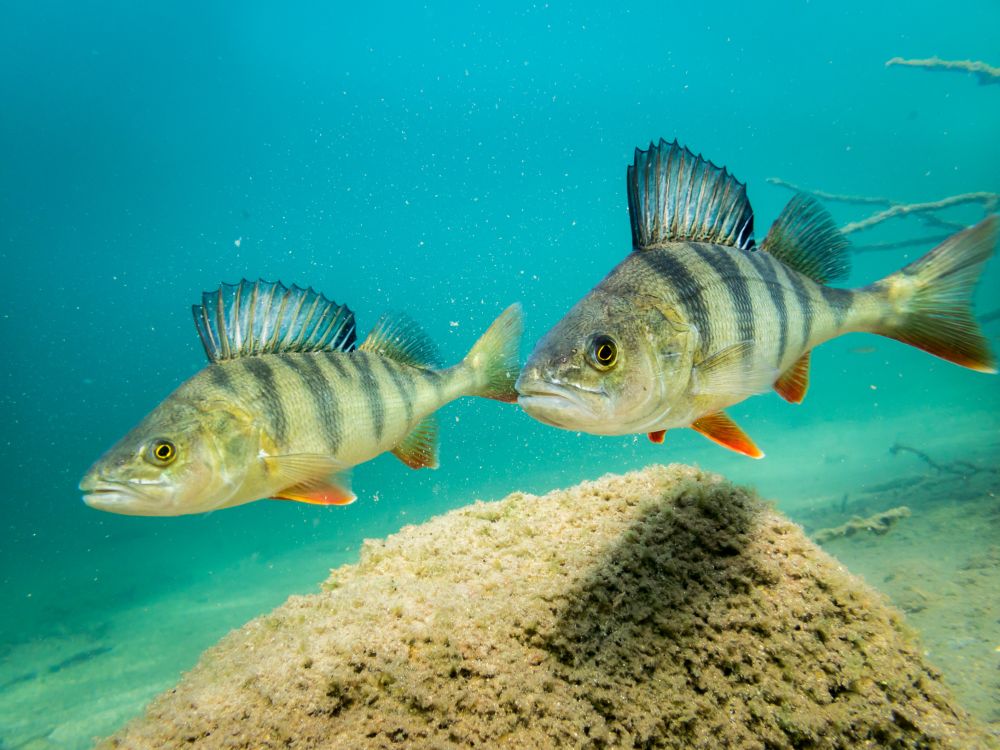
The Perch fish belongs to the Percidae Family. Its size, on average 15 to 20 cm, can reach 60 cm for a weight of 4.5 kg. Life expectancy is about 6 years (maximum 22 years). The perch spawns in April and lays between 4000 and 300,000 eggs. It is caught from June to December. Its body is stocky, high, yellow-green with broad transverse stripes; the belly is yellowish to matt white. Its ventral, anal and caudal fins are red; the anterior dorsal fin has sharp rays and a black spot on the back. Its operculum is finished by a strong thorn.
The Perch is a famous fish you can catch in Templeton Bridge.The Rudd fish
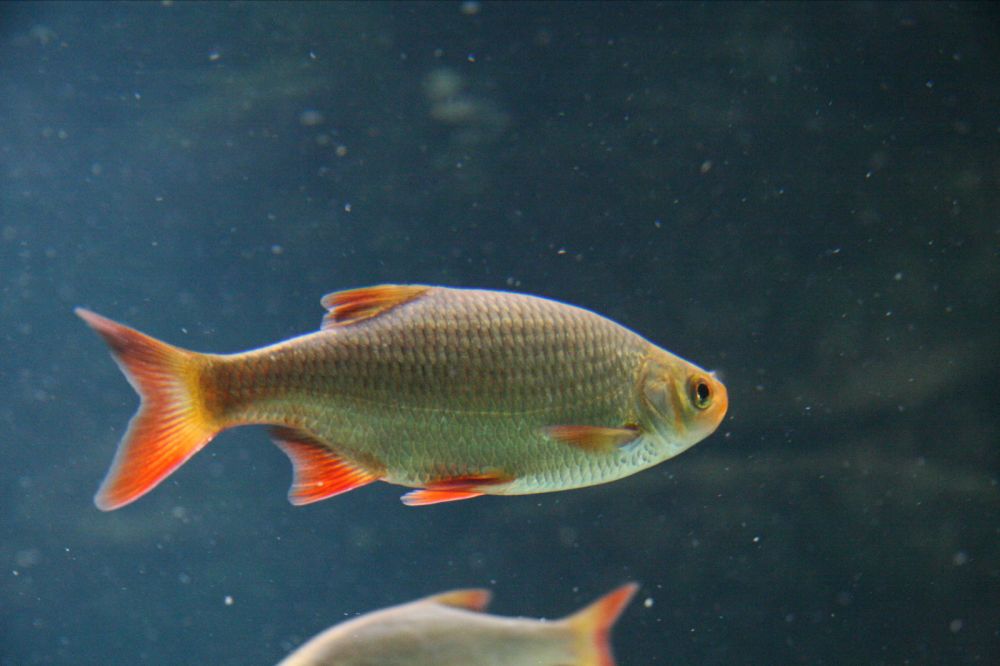
The Rudd fish belongs to the Cyprinidae family. The current size of the rudd fish is 15 to 30 cm for a weight of 0.5 to 1 kg. It can reach nearly 51 cm in height and weigh 2 kg. The rudd fish can live about 17 years. Egg laying is split and takes place from April to June. The female lays 100,000 to 200,000 eggs. Fishing for rudd is allowed all year round. It is easily identifiable by the diver: the silvery appearance of its body. A closer look at the position of the dorsal and ventral fins will then make the difference between the two species. If the ventral fins are placed further forward than the dorsal fin, it is the ratchet. The mouth, small, terminal, opens obliquely upwards. The back of the rattlesnake is brownish green, the sides and belly are silvery. The iris of the eyes is yellow with golden reflections. Dorsal, anal and pelvic fins are bright red in color.
The Rudd fish is a famous fish you can catch in Templeton Bridge.The Spined Stickleback
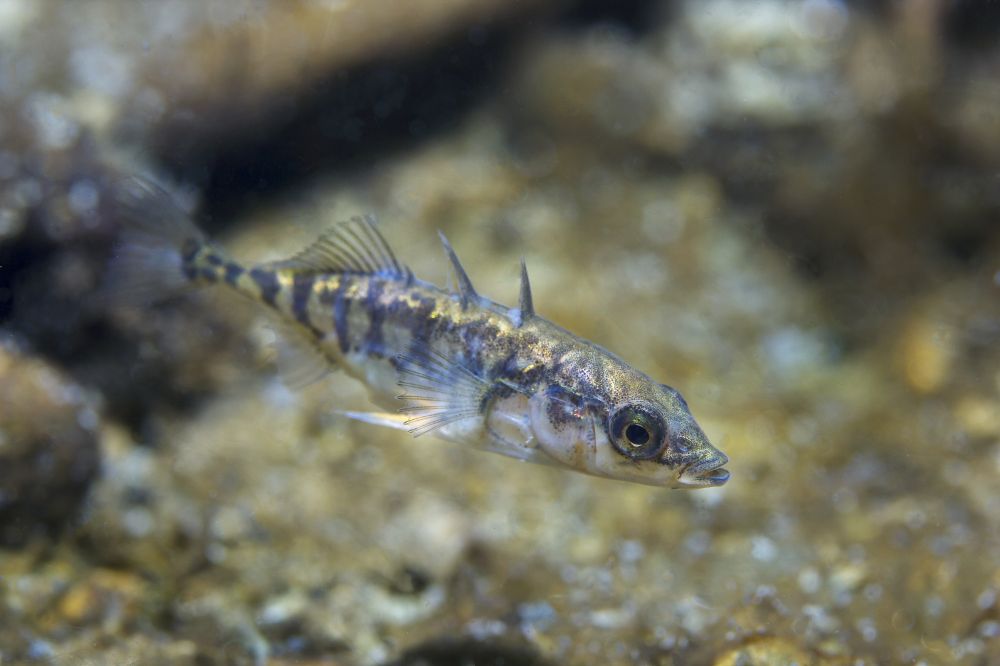
The Spined Stickleback belongs to the Gasterosteidae family. Females are larger than males, measuring 4 to 5 cm and males 3.5 to 4 cm. Its longevity varies from 3 to 5 years. The spined stickleback breeds from March to July to June depending on the region. Fertility is 100 to 400 eggs. It can be fished all year round. The spined stickleback is a small fish whose body is elongated and laterally compressed. Along the lateral line, the body is not covered with scales but with bone plates (badges). The caudal peduncle is very narrow. Three isolated spines are present on the back in front of the dorsal fin. The muzzle is pointed and has a terminal mouth. Pelvic fins are also replaced by two thorns. Its back is greenish brown with black on the back, the sides are silvery grey below the lateral line and the ventral side is whitish. The male's silvery coat turns a bright red color at the time of reproduction.
The Spined Stickleback is a famous fish you can catch in Templeton Bridge.The Rainbow trout
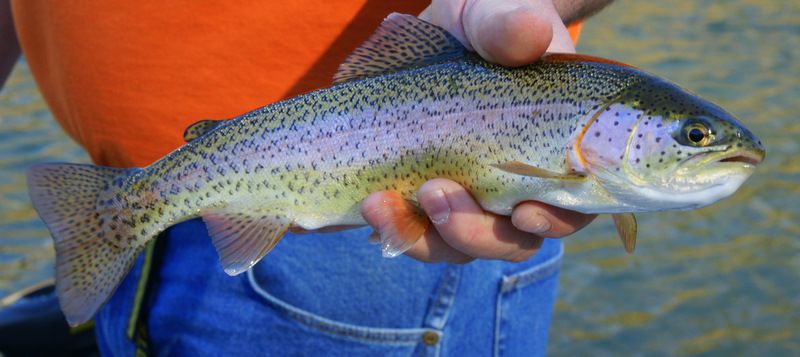
The Rainbow trout belongs to the Salmonidae family. On average, it measures 35 to 70 cm and weighs 500 g to 6 kg. In this species, a maximum lifespan of 11 years has been observed. Rainbow trout reproduce naturally from late March to early July. Fertility is about 2000 eggs per kg. Depending on the region, it is fished from March to September. Rainbow trout have a streamlined, laterally compressed and slender body. It has a small head and a slightly split mouth. Its body is arched at the level of the dorsal fin. It should also be noted that there is an adipose fin common to all Salmonids. Its scales are small and thin. Generally, the entire body is punctuated by small black spots, many on the back and sides, as well as on the dorsal and caudal fins. The back is olive green and the sides are silvery. The color of the belly varies from white to yellowish. Nevertheless, the general coloring of the body varies greatly depending on the age, habitat and physiological stage of the fish. The particularity of rainbow trout lies in the presence, all along the body, of an iridescent longitudinal band, predominantly pink. During the breeding season, the female is generally rounder because of the ovarian volume, while the males appear to be more elongated. They become darker and their colors more vivid.
The Rainbow trout is a famous fish you can catch in Templeton Bridge.Our fishing forecast of Templeton Bridge indicates the best time to go fishing in this city.
Our fishing forecast of Templeton Bridge indicates the best time to go fishing in this city.
Our fishing forecast of Templeton Bridge indicates the best time to go fishing in this city.
